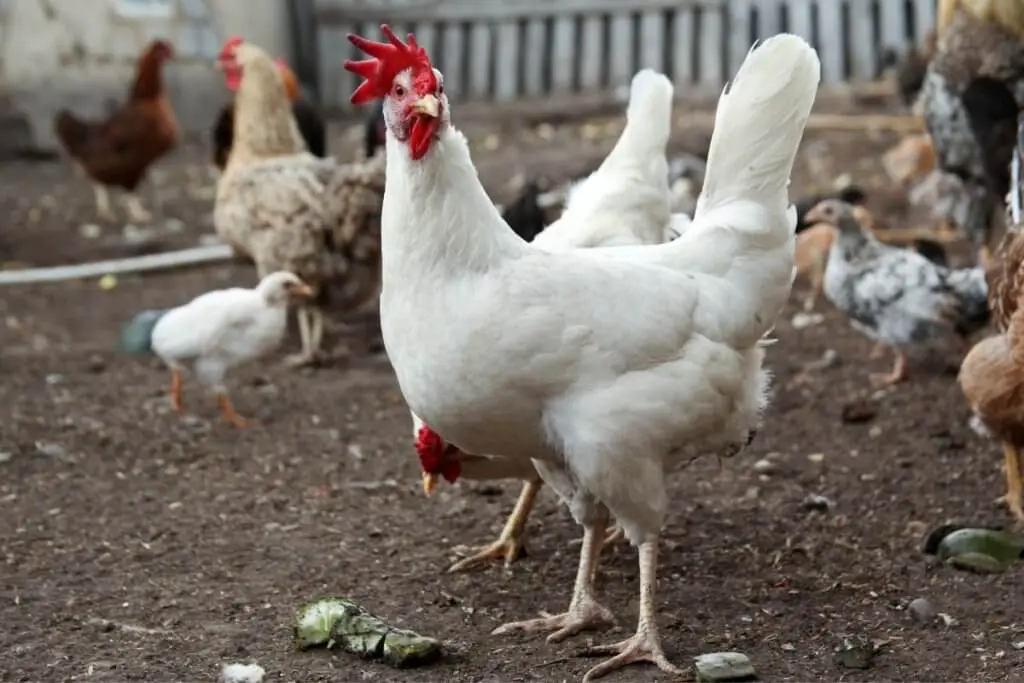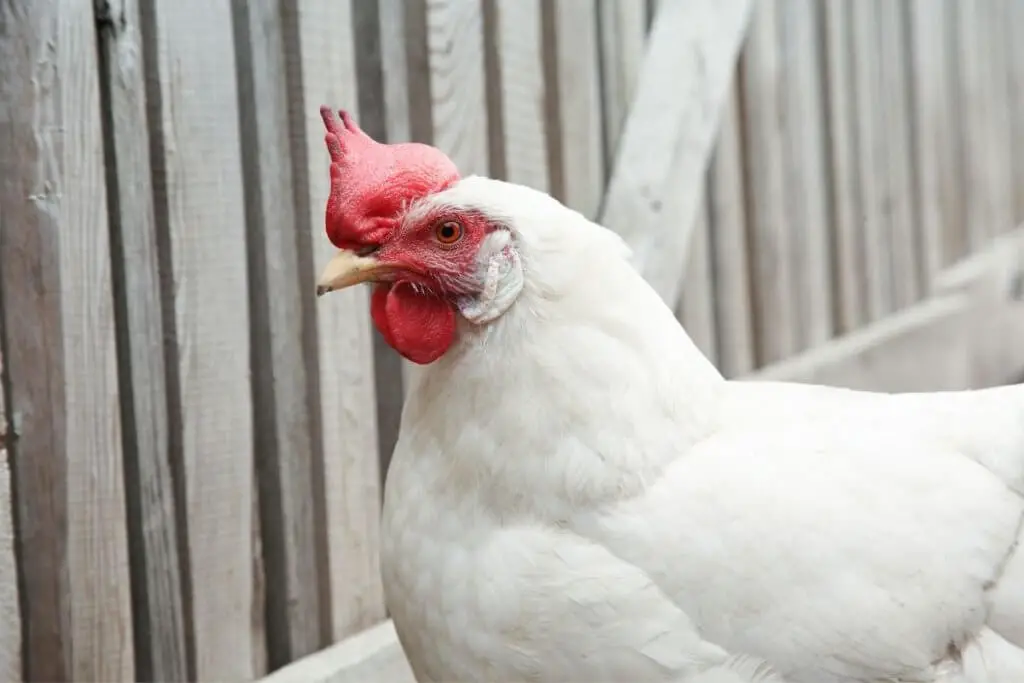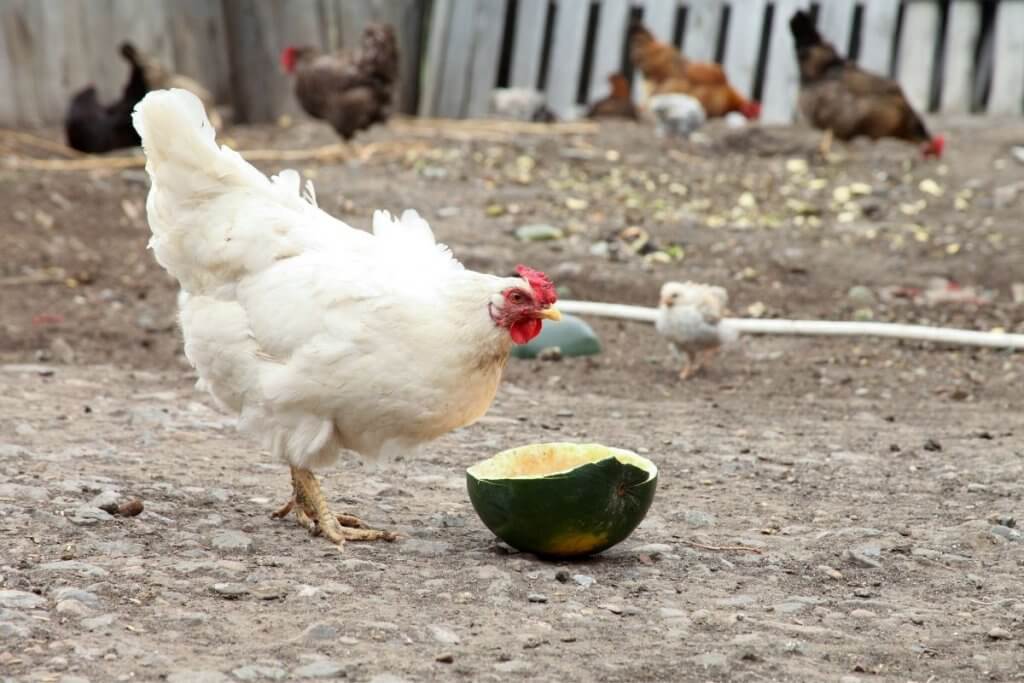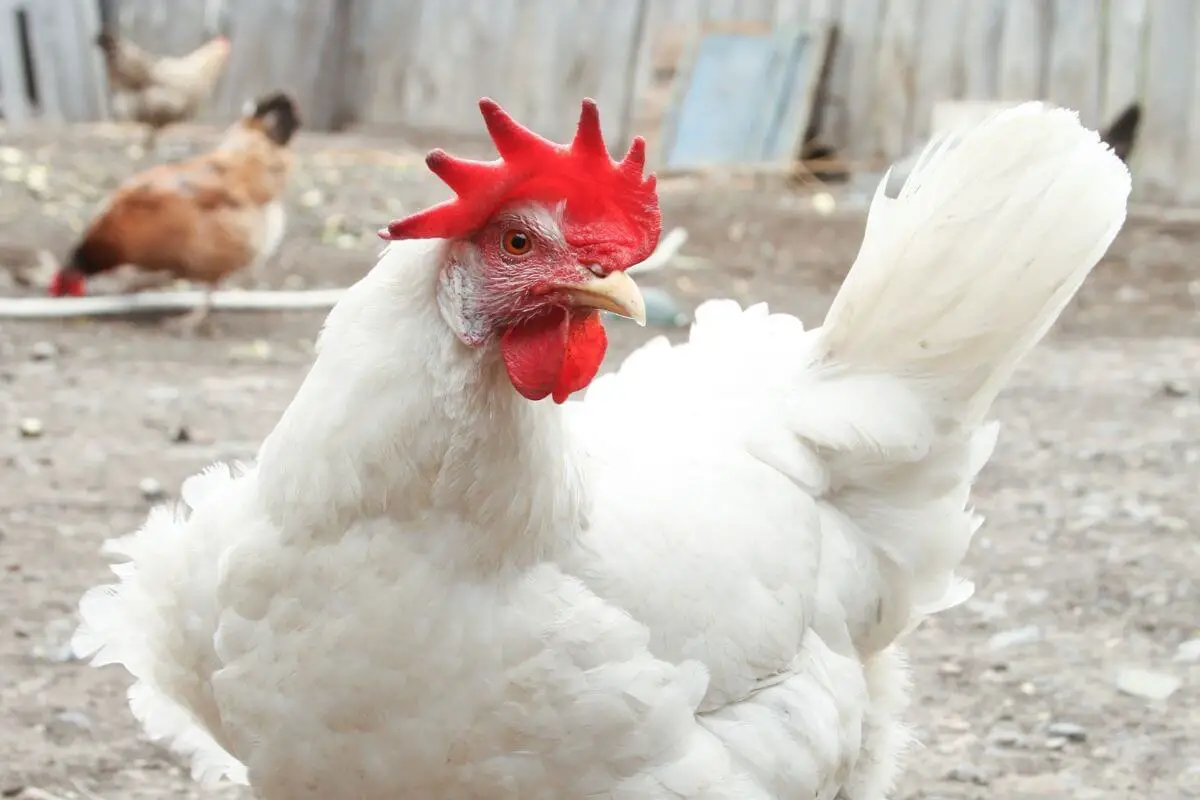Cornish Cross Chicken are super fast growers and will be ready for butchering in 8 to 10 weeks. However, you'll have to wait until 4 to 5 months before you can collect eggs, and most birds will be butchered well before then, making this a single-purpose breed.
Ready on to discover whether the Cornish Cross Chicken is worth considering for your backyard or small farm operation.
Table of Contents
What is a Cornish Cross Chicken?
The Cornish Cross chicken is a hybrid chicken created when you cross a Cornish chicken and a Plymouth White chicken. These birds are as heavy as a Cornish but have a look and growth rate similar to the Plymouth White.
These birds are one of the most popular fast-growing chicken breeds for meat production and are commonly referred to as Cornish Cross broilers because people generally raise them as broiler chickens. If you’re looking for meat birds, they are cost-effective and have great feed conversion.
What does a Cornish Cross Chicken look like?
There are different strains of Cornish Cross chickens, however the most common are the Cobb 500, Ross 308, and Ross 708. Depending on the strain of bird you have, their appearance can be slightly different.
All three of these have yellow legs and are white-feathered with a bright red comb and red wattles. The Cobb 500 looks rounder than the other two, and will occasionally have black flecks on some of their feathers.
The Cobb 500 and the Ross 308 are sometimes called Jumbo Cornish Cross for the amount of breast meat that they have, whereas the Ross 708 has an even distribution of meat rather than being heavily breasted.
These birds typically are not seen as attractive in comparison with other breeds. They tend to look bloated (because they love to eat) and they prefer to be sedentary so they do not have strong legs or an upright carriage.
The skin beneath their feathers however, is a beautiful pearly white so their meat looks more attractive when left with the skin on.
Do Cornish Cross Chickens Lay Eggs?
Most broiler breeds will not live long enough for egg-laying. They are typically not considered dual purpose because they aren‘t really used for egg production purposes.

Laying hens will typically begin reaching the point of lay at 4 to 5 months and most Cornish Cross chickens will just not live long enough to become egg layers. Additionally, roosters will not reach sexual maturity in time to fertilize the eggs.
If you are looking for your flock to produce both eggs and meat, you will need to choose a different breed.
Can you Buy Cornish Cross Chicken Meat at the Grocery Store?
Cornish Cross chickens were originally bred to be meat chickens or roasters because they are extremely fast growers and they are ready to be butchered at just 8 to 10 weeks of age. This makes them ideal for commercial chicken farms.
These meat chickens changed people’s eating habits as this meat bird provides meat specifically meant for grocery stores and the meat can be easily preserved and frozen. Most of the chicken meat you can buy in the store is from a Cornish Cross chicken.
Is it Easy to Breed Cornish Cross Chickens?
If you are considering breeding Cornish Cross Chicks for the first time, you will need to think about getting your chick starters from a reputable hatchery. Most hatcheries will only provide straight-run chicks, so be sure to factor that in when deciding how many birds to purchase.
Hens will rarely go broody so you will need to use a high-quality brooder and make sure you are using heat lamps when appropriate to control the temperature of the eggs. After the baby chicks hatch, you will need to ensure they are neither too hot or too cold, as they are incredibly sensitive to temperature.
What Health Problems Do Cornish Cross Chickens Have?
Cornish Cross chickens are extremely prone to leg issues and various leg problems in addition to heart attacks because they grow so quickly. This rate of growth is taxing on their muscles and many will not live past 12 weeks because of this, which is a good reason to butcher them early.

Some people say that these birds are GMO birds because of their health problems and rate of growth, but they aren’t. These birds were first created by crossing two heritage breeds, and afterwards, through selective breeding, we ended up with the Cornish Cross chickens of today.
Are Cornish Cross Chickens right for you?
Raising Cornish Cross chickens can be a wonderful endeavor but it can also be challenging as these birds aren‘t self-sufficient. For this reason, they aren’t considered a great bird for beginners, as a lot of knowledge is required to keep them healthy and to provide proper care as they grow.
They love to eat, and eat….and eat!
As with any meat bird, Cornish Cross chickens go through a large amount of high protein feed because of their rapid growth and this feed can be expensive. You can get 50-pound bags of high protein feed at a feed store – and you will need plenty of it because these birds like to park themselves in front of a feeder and constantly eat, rather than explore their surroundings.
While it is important to provide them with plenty of feed, you have to keep an eye on them and not give them completely free reign as they will over-eat and this overeating can kill them.

Another important thing to note about Cornish Cross chickens is that they also require more water than other breeds. You will need to refill their water daily, and its best to provide five gallon buckets at a time so they don’t run out.
Their coops can smell bad
Cornish Crosses eat and drink a lot and as a result poop quite a bit more than other breeds resulting in bad-smelling coops. Using shavings on the ground will help you to clean out their chicken coop more easily, but you will still need to clean the coop every few days.
These birds also do not protect themselves from predators well. As they are growing you may want to use a chicken tractor to ensure they can be somewhat free-range and have access to ground areas to move around while also being safe from predators.
Closing Thoughts
As with any breed of chicken, its important that you choose one that has the characteristics and fits the purpose of what you want. If you are a homesteader looking to raise and process your own meat, this bird can be a fantastic choice.

